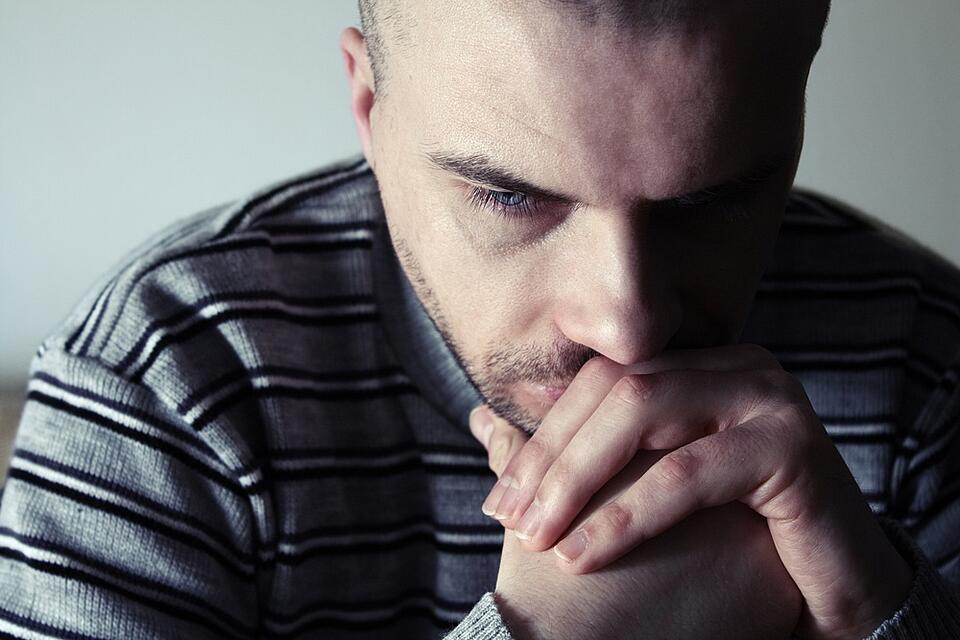Depression is a serious mood disorder that can affect any person, regardless of age, gender, sexual orientation, or environment. And yet, this common mood disorder is often considered taboo, something to be hidden rather than discussed openly. For many men, there is the added stigma that depression is a sign of weakness or being “less than.” As a result, men may try to be “strong and silent” about their mental health challenges rather than seek the help of a qualified professional.
Here we’ll take a closer look at depression in men and the importance of addressing the stigma, with insights from Dr. Michael Minzenberg, Psychiatrist and Medical Director of Research at Mindful Health Solutions.
Identifying Depression: The Psychology of Behavior in Men
Approximately 6 million American men have depression each year, but fewer than half disclose their mental illness symptoms and get treatment, often resulting in lasting negative effects due to the way they process and handle symptoms and behaviors associated with depressive episodes.
“Many clinicians and scholars who address the interaction of gender, psychology, and mental health have noted that many men express strong personality traits that are widely seen as typically masculine, such as stoicism, self-reliance, competitiveness, and desire for control,” says Dr. Minzenberg. Studies have shown that many men with depression feel more irritable and tired, or have trouble with daily life and lose interest in everything for weeks at a time, including their work, family, friends, and hobbies.
“They often also use particular psychological strategies to manage their emotions and interpersonal relationships, such as suppression of emotions and vulnerability. Together these aspects of psychology (which of course can also be observed among persons who do not identify as male) strongly influence men’s health behaviors, such as when and how to engage clinical support, both in mental health and medicine more generally.” (Coleman, 2015; Moller-Leimkuhler, 2003; Payne et al., 2008; Pirkis et al., 2017).
Symptoms of Depression in Men
Regardless of the influences behind men’s response to depression, everyone experiences depression differently – some show only a few signs while others suffer from all the symptoms. The severity of behaviors may include:
• Feeling sad or “empty”
• Feeling hopeless, irritable, anxious, or angry
• Loss of interest in work, family, or once-pleasurable activities, including sex
• Feeling very tired
• Not being able to concentrate or remember details
• Not being able to sleep, or sleeping too much
• Overeating, or not wanting to eat at all
• Thoughts of suicide, suicide attempts
• Aches or pains, headaches, cramps, or digestive problems
• Inability to meet the responsibilities of work, caring for family, or other important activities.
Additionally, men can exhibit other behaviors that could be signs of depression:
• Escapist behavior, such as spending a lot of time at work or on sports
• Alcohol or substance abuse
• Controlling, violent or abusive behavior
• Irritability or inappropriate anger
• Risky behavior, such as reckless driving
The Dangers of Not Seeking Help
For too long men have been hiding their depression, leading to poor health, loss of jobs and relationships, and many unfortunate suicides. According to Webmd.com, men take their lives nearly four times the rate of women, accounting for 79% of suicides in the U.S.
“As a result, it is important for clinicians to recognize and address these aspects of men’s psychology, in a manner very analogous to the recognition of other clinical populations who have demographic-specific aspects, such as women, elderly, immigrant, and youth populations,” adds Dr. Minzenberg. “This is imperative in order to maintain engagement of men in treatment and to optimize their clinical outcomes.”
It may be true that some men don’t recognize, acknowledge or want to get help for their depression. But there are just as many, if not more, who do, and it is vital for mental health professionals and men with depression alike to recognize the signs, understand the nuances in male depressive behavior, and actively encourage treatment to ensure effective depression care.
Depression is a treatable illness. With the right solutions in place, most men can feel better quickly and gain back their life. Mindful Health Solutions can help. Reach out today to get started.

